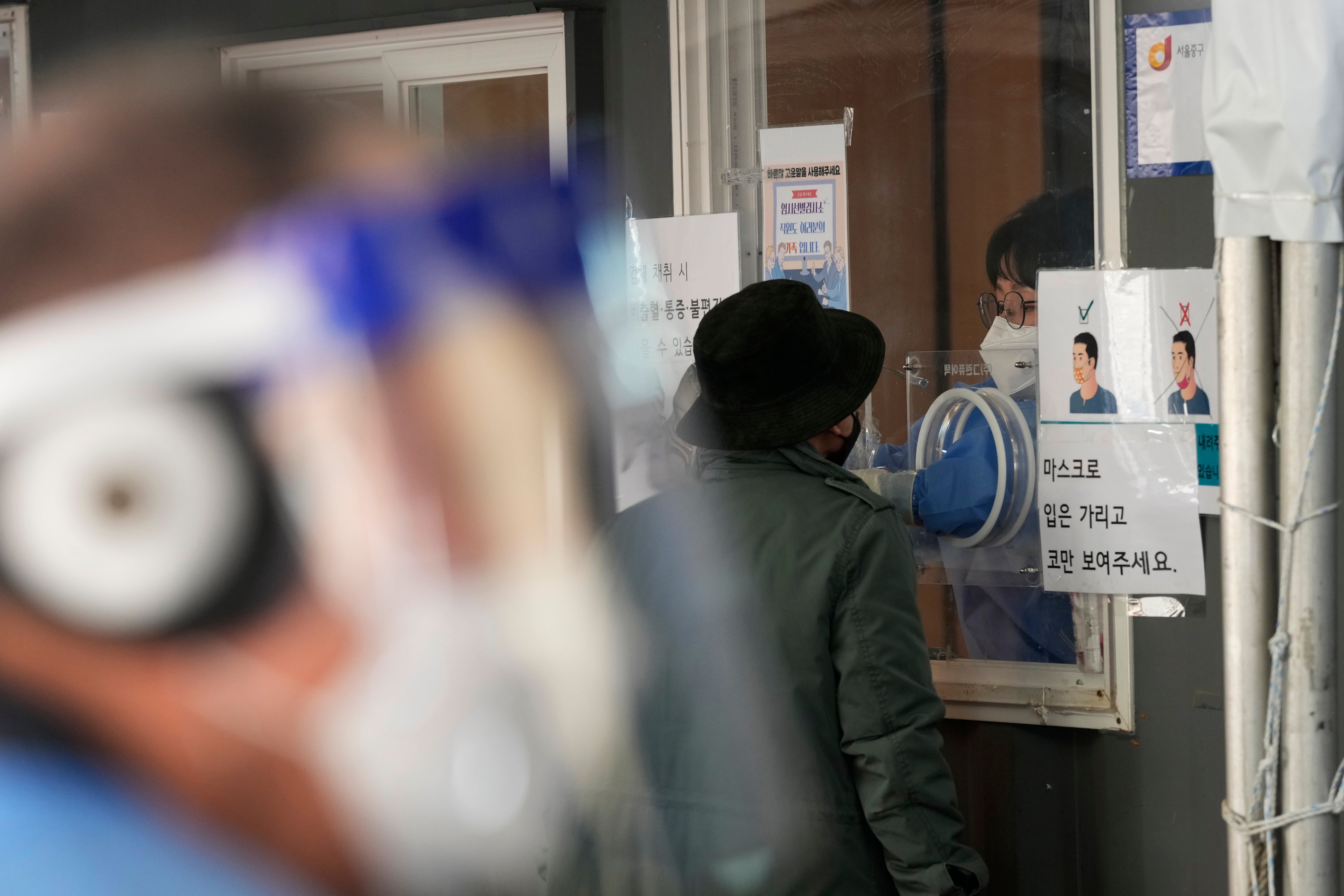Omicron forces S. Korea to end GPS monitoring, some checkups
South Korea will no longer use GPS monitoring to enforce quarantines and will also end daily checkup calls to low-risk coronavirus patients as a fast-developing omicron surge overwhelms health and government workers

Your support helps us to tell the story
From reproductive rights to climate change to Big Tech, The Independent is on the ground when the story is developing. Whether it's investigating the financials of Elon Musk's pro-Trump PAC or producing our latest documentary, 'The A Word', which shines a light on the American women fighting for reproductive rights, we know how important it is to parse out the facts from the messaging.
At such a critical moment in US history, we need reporters on the ground. Your donation allows us to keep sending journalists to speak to both sides of the story.
The Independent is trusted by Americans across the entire political spectrum. And unlike many other quality news outlets, we choose not to lock Americans out of our reporting and analysis with paywalls. We believe quality journalism should be available to everyone, paid for by those who can afford it.
Your support makes all the difference.South Korea will no longer use GPS monitoring to enforce quarantines and will also end daily checkup calls to low-risk coronavirus patients as a fast-developing omicron surge overwhelms health and government workers.
The speed of transmissions has made it impossible to maintain a tight and proactive medical response, Jeong Eun-kyeong, the country’s top infectious disease expert, said Monday.
The Korea Disease Control and Prevention Agency reported 38,691 new cases of the virus, a nine-fold increase from the levels seen in mid-January, when omicron became the country’s dominant strain. Jeong said the country may see daily jumps of 130,000 or 170,000 by late February.
South Korea had been seen as a success story during the earlier part of the pandemic after it contained infections and hospitalizations more effectively than most countries in the West. Health authorities worked closely with biotech companies to ramp up laboratory tests and aggressively mobilizing technological tools and public workers to trace contacts and enforce quarantines.
But the country’s strengths have been rendered irrelevant by the unprecedented spike in infections fueled by the omicron variant, which has stretched health and administrative resources.
Officials had already been forced to expand at-home treatments, reduce quarantine periods, and reshape testing policy around rapid antigen test kits, despite concerns over their reliability, to save laboratory tests for people in their 60s or older and those with existing medical conditions who are at higher risk for serious illness.
The plans to further ease the monitoring and quarantines came as health and public workers struggle to keep up with the near 150,000 people being treated at home for mild or moderate symptoms, which have led to delays in drug prescriptions and has paralyzed contact tracing.
Officials say public workers who had been monitoring virus carriers through GPS-enabled smartphone apps will now be assigned to help with at-home treatments. Virus carriers will no longer be required to report to local health offices when they leave home to visit doctors, while their cohabiting family members can now freely go out to buy food, medicine and other essentials.
Low-risk virus carriers, who are in their 50s or younger and have no pre-existing medical conditions, will now be left to monitor their conditions on their own and contact local hospitals if their symptoms worsen. Health workers will still make daily checkup calls to people in their 60s and older or those with pre-existing medical conditions.
“We are planning to transition toward an anti-virus strategy that’s concentrated on maintaining essential social functions while dealing with huge numbers of infections and people placed under quarantine,” Jeong, the KDCA’s commissioner, said during a government briefing.